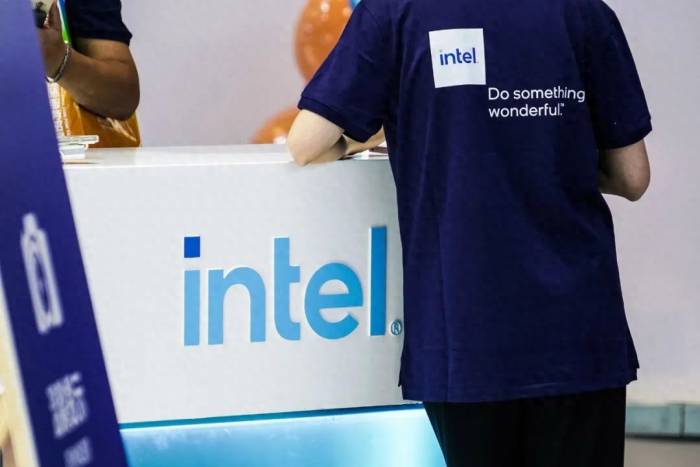Qualcomm Cash Short for Intel Bid
In a dramatic turn of events within the semiconductor industry, Qualcomm, a dominant player known for its cellular technology and mobile chipsets, has ignited speculation regarding a potential acquisition of the iconic chipmaker Intel. Ascribed to the continual challenges facing Intel in recent years, this development has raised eyebrows among investors and analysts alike, leading to a slew of conversations revolving around feasibility, strategic fit, and regulatory hurdles that any merger would encounter.
In recent reports, Qualcomm has been making overtures to Intel for acquisition discussions, stirring excitement in the tech community. Exciting as it sounds, various analysts have pointed out the substantial gap between Qualcomm's cash reserves and the tall order of Intel's market valuation, which hovers above $90 billion. As of June 2024, Qualcomm's cash and cash equivalents amounted to approximately $7.77 billion, with additional securities totaling $5.26 billion. Cumulatively, this creates a shortfall exceeding $80 billion, making such an acquisition relying solely on equity and cash virtually impossible.
Advertisement
The semiconductor industry has witnessed wild fluctuations over the past few years, particularly in the case of Intel, which has faced declining revenues and profits. In fact, Intel has recorded two consecutive years of revenue dips, and the outlook for 2024 does not appear much brighter. They project a net loss of around $1.99 billion for the first half of the year, marking a staggering 54% decline in stock price since January 2024. The obstacles posed by dwindling profitability are further compounded by a mass layoff announcement that would see approximately 15,000 employees depart from the company – the largest downsizing of its kind seen in over three decades.
At the crux of Qualcomm's alleged interest in Intel are their respective strategic ambitions. Qualcomm is primarily a leader in mobile chip technology, capitalizing on an expansive demand for smartphones and IoT devices. On the other hand, Intel boasts significant operations in PC chip production, accounting for 54% of its total revenue, and control of both server and data center markets. However, Intel's transitioning focus toward foundry services offers Qualcomm an integrated opportunity to establish a more robust position in the chip manufacturing ecosystem.
It's worth noting that the acquisition talks have further ignited interest in the competitive dynamics between these two giants. The crux of this complexity lies in Intel's attempts to diversify and stabilize its earning capacities amid intense competition from Nvidia, a company that has substantially reshaped the computing landscape with its prowess in GPU-driven performance. As Intel grapples with its identity in a rapidly evolving tech landscape, many speculate that the integration with Qualcomm could yield greater synergies, despite the looming challenges of executing such an ambitious deal.
Adding fuel to the fire is the intricate tangle of antitrust scrutiny that any merger of this magnitude would precede. The merger would certainly face extensive evaluations from regulatory bodies across the U.S., Europe, and other territories with vested interests in the semiconductor market. These evaluations can linger for months at a time and might ultimately culminate in the blocking of established mergers, should any jurisdiction voice concerns regarding competition integrity.
In particular, the role of Chinese regulatory authorities has emerged as a pivotal aspect to consider. Given Qualcomm and Intel’s footprint in China, it is essential for them to navigate Chinese antitrust regulations which mandate prior notification for specific mergers that exceed certain financial criteria. The thresholds for mandatory reporting include considerations for the global sales turnover and any local income generated within China. Both Qualcomm and Intel undoubtedly meet these thresholds, positioning China's antitrust reviews at the forefront of any potential merger discussions.

As both companies tread carefully through these potential waters, speculation has arisen surrounding what may actually happen with Intel's operational divisions post-acquisition. Particularly critical are the possible divestitures of elements of Intel's business that could raise antitrust flags. For instance, Intel’s recent strategic moves to carve out its foundry services as a standalone business unit could be indicative of a broader intention to appease regulatory concerns regarding a Qualcomm acquisition.
Industry observers highlight the sensitive nature of competition seen within the chip sector, emphasizing that regulatory bodies might resist approving consolidation among leading semiconductor manufacturers for fear of combative market dynamics. Broad sentiments expressed by several analysts suggest that despite the allure of a Qualcomm-Intel marriage, the structural complexity of both enterprises could serve as a formidable barrier to consummation.
With global markets standing vigilant on developments, the coming weeks and months will likely reveal more about Qualcomm's aspirations, Intel’s strategic direction, and how the inherent challenges stemming from such a merger could unfold. As such, this particular acquisition saga serves not only as a barometer for both companies but also as a manifestation of the high stakes involved in the layered world of semiconductor manufacture and design. Could a Qualcomm acquisition save Intel? Time will tell as we explore the intricate nuances behind one of the industry's most talked-about potential deals.
Comment